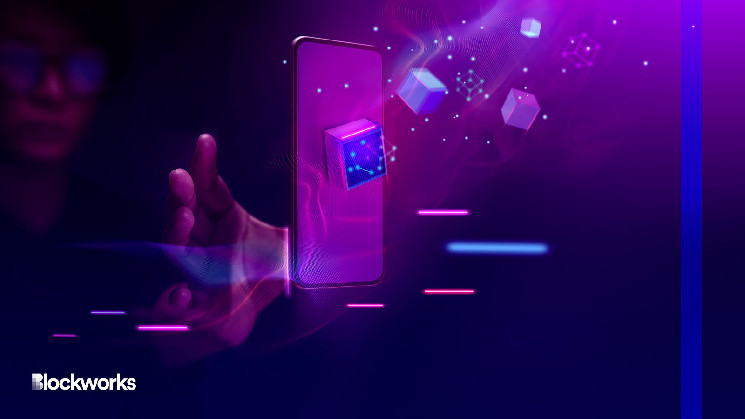NFT
Non-fungible tokens have considerably advanced from simply being considered hype trading cards, and have gone on to capture mass attention as the concept has evolved into more solid use cases.
These tokens essentially are unique digital assets that can take the form of anything, and represent distinct ownership.
Some NFT use cases are already well known, while others are up and coming.
Real Estate NFTs
Real property is one of the major areas where NFTs have grown popular, as seen by the appetite for the fractionalized real estate market. Investors are hungry to diversify investment options, and since housing prices are so expensive, they have found that opting to buy just a chunk of real estate can be a logical solution.
Gaming NFTs
NFT marketplaces have already seen over $700 million in daily volume, with players like Sony, Polygon and Yuga Labs making significant bets on NFT gaming, said Hsuan Lee, co-founder of Blocto.
“The convergence of NFTs, gaming and sports fandoms represent a critical inflection point for the transition from Web2 to Web3,” he told Blockworks.
“The gaming sector, with its early tech adopters, represents a crucial market segment with in-game currencies and character ‘skins’ serving as a foundation for tokenization. By enabling digital ownership, the sector can realize the potential for game interoperability and monetization, taking utility and composability to the next level.”
Ukraine’s war funds
Ukraine’s ministry of digital transformation launched the MetaHistory NFT museum in March 2022, an effort to keep real-time records of Vladimir Putin’s invasion of Ukraine. The museum sells NFTs, which feature tweets about the war from Ukrainian artists, and the funds go to the ministry’s crypto wallet. Valuable cultural monuments that are destroyed or impacted by the war are restored from the ministry’s funds.
Preserving cultural heritage
Preserving information for a future date is another novel use case for NFTs.
Indonesian culture NFTs
Indonesia’s ministry of tourism is using NFTs to maintain records of its heritage, and in the process, boosting virtual tourism. Web3 platform Quantum Temple is working closely with the Southeast Asian country to tokenize both tangible and intangible forms of its cultural heritage.
Vatican museum NFT gallery
The Vatican announced last year that it would open an NFT art gallery in the metaverse, allowing people from anywhere in the world to view its collections, manuscripts and other objects contained in the actual museum. The city-state teamed up with augmented reality firm Sensorium and non-profit Humanity 2.0.
Experiences
Starbucks tokenizes “journeys”
Starbucks recently launched its first collection of NFTs called “Journey Stamps,” which were originally introduced in December. Web3 consultancy firm Forum3 worked with Starbucks on the project.“ Going to a Starbucks store you’ve never been to this week, or trying a Starbucks drink you’ve never tried” are some examples of these journeys, Forum3’s co-founder Adam Brotman told Blockworks’ founder Jason Yanowitz. In March, the cafe chain sold 2,000 NFTs for $100 each in just 20 minutes of its release.
Australian Open tokenizes match data for NFTs
The Australian Open was the first grand slam to enter the metaverse, minting the AO Art Ball NFTs linked to live data like match points on the blockchain. This project offered people around the world a unique chance to own a select piece of the AO experience, such as a specific moment during the tournament.
Credentials
NFTs are now being utilized by professionals across a plethora of fields with several noteworthy use cases, according to Ekaterina Smirnova, CEO of IOGINALITY.
“Looking at developments across the NFT landscape over recent months, it is clear that as the mainstream infatuation and hype subsides, the professionals remain,” she said.
Today, NFTs are used to represent educational degrees, or professional certifications, enabling secure and verifiable proof of credentials. For instance, I obtained my Wharton certificate on the blockchain, and all I need to do is share the link to proudly display my accomplishment on LinkedIn.
Token-gated access
Nike’s NFT marketplace
Nike got in on the NFT game by launching a marketplace called .Swoosh. The platform lets users trade, that is buy or sell, virtual Nike products like apparel and shoes, mostly meant for “wearables in games or other immersive experiences.”
“Nike serves as an example of a traditional industry, such as fashion, utilizing the widespread interest in the Web3 space to propel their product offerings,” Ken Timsit, head of Cronos Labs, told Blockworks.
Ticketmaster NFT tickets
Ticketmaster opened access to event organizers to issue NFTs tied to tickets. The American ticket sales company allows partners to sell NFTs with tickets on the Flow blockchain. Metal Band Avenged Sevenfold was the first to use Ticketmaster’s “token-gated sales” concept, meaning fans would have early access to concert tickets and other special events using NFTs.
“By appealing to targeted communities, NFT projects such as this will act as a conduit to onboard the next generation of mainstream users to Web3,” said Stefan Colins, head of marketing at blockchain firm Venly.
Spotify pilots token-enabled playlists
Music streaming giant Spotify is trialing NFT playlists that can only be accessed by certain users. Gaming startup Overlord and Bored Ape band KINGSHIP are among NFT communities that have used this service.
California tokenizes car titles
California’s Department of Motor Vehicles is using blockchain to allow information on car titles to be stored as NFTs. It is using a private fork of blockchain Tezos and crypto software provider Oxhead Alpha to test e-titles, in a move that would decrease documentation and make the process of title information more efficient.


